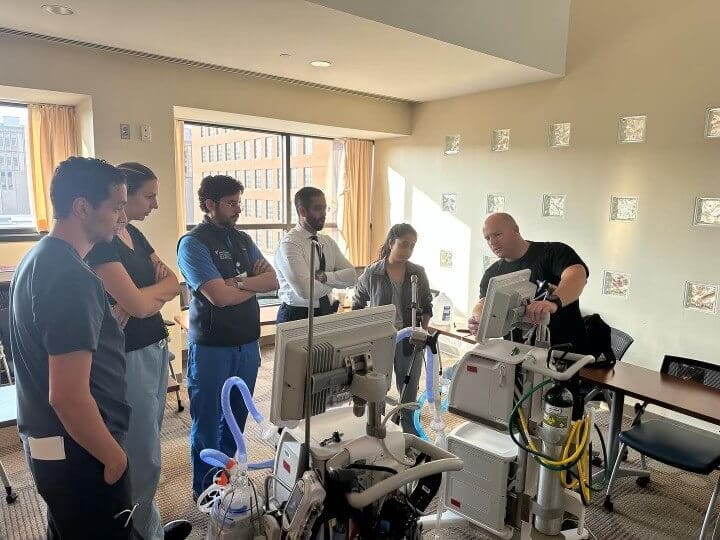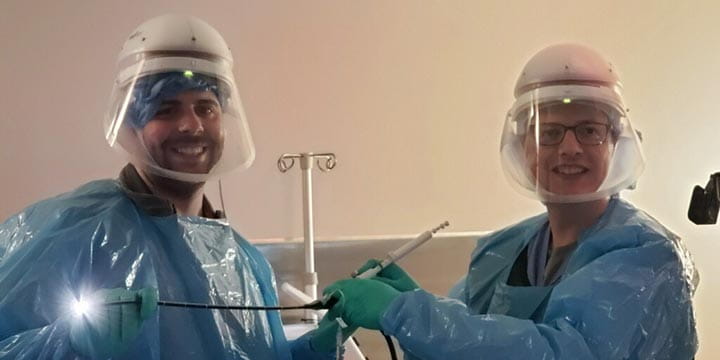Program Overview

The primary goal of our program is to train outstanding physicians to become leaders in the field of academic pulmonary and critical care medicine. To accomplish this goal, training will focus on clinical experience, research training, medical education, quality improvement and career development.
Clinical and Research Training
On clinical rotations, our fellows will interact closely with experienced faculty to care for complex patients in intensive care units, as well as pulmonary medicine floors and clinics. Our fellows will become proficient in a wide variety of advanced pulmonary and critical care procedures. This experience is complemented by attending lectures and weekly meetings including Grand Rounds, Journal Club and multidisciplinary meetings.
During the research experience, each fellow works closely with a mentor to develop a laboratory-based, translational, clinical research or other academic project. Formal training in laboratory methodology, clinical research, epidemiology, biostatistics and ethics is also available during research training. All fellows are expected to present their work at local, national and international meetings. We support tracks for global health, medical education and quality improvement, as well as traditional basic science, clinical, and translational research.
Individual Pathways and Mentorship
 We take pride in developing individualized pathways for our fellows, under close mentorship, to help them meet their individual goals. Advising and mentoring is an integral part of our fellows’ interactions with the faculty. Fellows receive daily guidance by program faculty through bedside rounds and by the fellowship director and division chief during semi-annual reviews, in addition to didactic sessions and individualized one-on-one mentoring aimed at career development. All these tools will provide our fellows with the necessary experience to qualify for the best positions in the field.
We take pride in developing individualized pathways for our fellows, under close mentorship, to help them meet their individual goals. Advising and mentoring is an integral part of our fellows’ interactions with the faculty. Fellows receive daily guidance by program faculty through bedside rounds and by the fellowship director and division chief during semi-annual reviews, in addition to didactic sessions and individualized one-on-one mentoring aimed at career development. All these tools will provide our fellows with the necessary experience to qualify for the best positions in the field.
All fellows are accepted through the NRMP and applications are accepted through ERAS. The program can sponsor J1 visa applicants, however H1B visa applicants are considered on a case by case basis.


